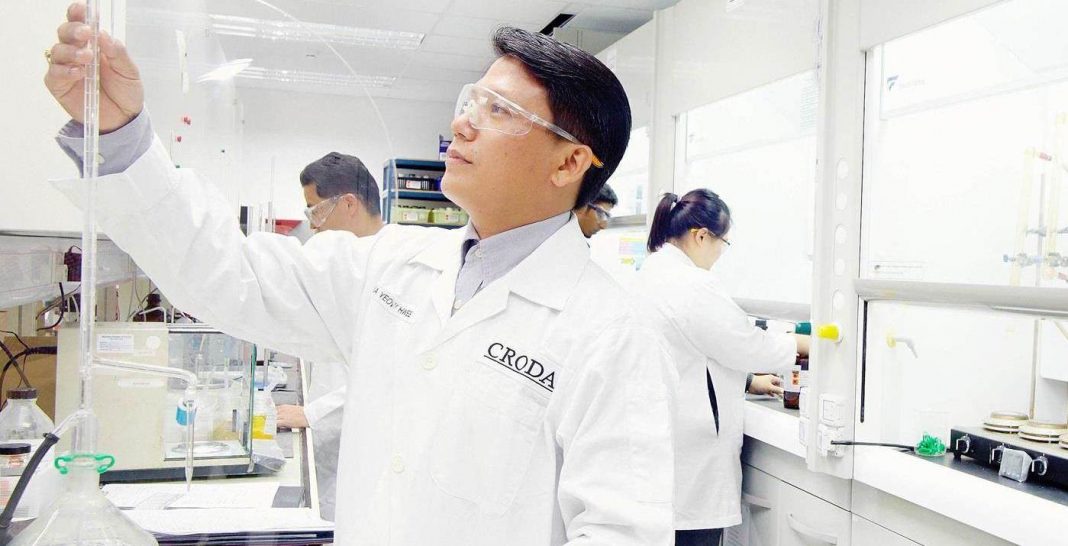Snaith-based Croda International is to work with the Universities of Nottingham and York to develop novel, sustainable polymers for everyday liquids like personal care and crop protection products, and in doing so eliminate millions to tonnes of plastic waste.
Their objective is the development of biobased and biodegradable polymers for liquid polymer formulations.
Used in a number of day-to-day items including crop protection and personal care products, these special polymers for liquids provide the key function of emulsification and stabilisation, without which widely-used items wouldn’t meet consumer requirements. Despite their critical part in formulations, there has so far been no coordinated effort to develop more sustainable versions, and it is estimated that more than 36 million tonnes (enough to fill Wembley Stadium 32 times over) of these polymers are not recovered after use, entering the environment as plastic waste.
Dr Ian Tooley, Vice President – Chemistry at Croda said: “Croda’s ambition to be the most sustainable supplier of innovative ingredients is key in our drive to find sustainable solutions for these widely used polymers. We are excited to be partnering with these like-minded, innovation driven universities to help bring sustainable, biobased and biodegradable alternatives to our markets.”
Steve Howdle, Professor and Head of School of Chemistry at University of Nottingham said: “Working with our industrial and academic partners we will create new sustainable polymeric materials that are going to have an impact on our supermarket shelves. I’m excited.”
Professor Helen Sneddon, Director of the Green Chemistry Centre of Excellence, University of York added: “This is a great opportunity to further explore the potential of bioderived, biodegradable soluble polymers, understanding the different properties they can offer relative to current petrochemically-derived ingredients, and having an impact in an important, and often overlooked area.”



